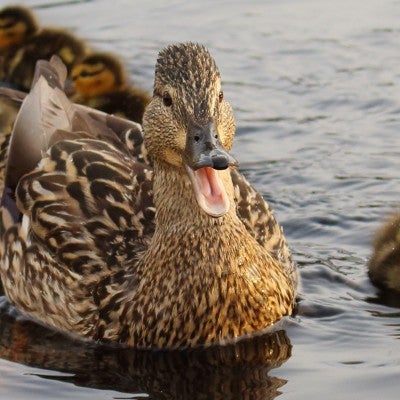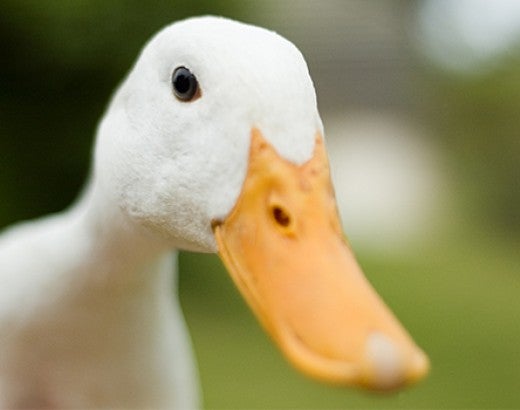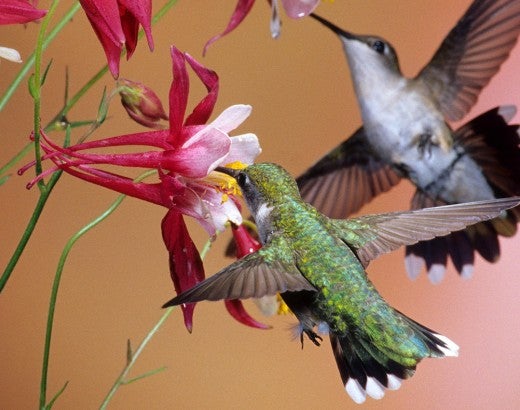Part of the Anatidae bird family that also includes geese and swans, ducks are found on every continent except Antarctica. They have been domesticated as pets and farm animals for hundreds of years, and their popularity is evidenced by their frequent appearances as everything from cartoon characters to sports team mascots. But they are frequently raised in extreme confinement on factory farms for their eggs and meat, and the force-feeding of ducks to produce foie gras is particularly stressful and unhealthy.
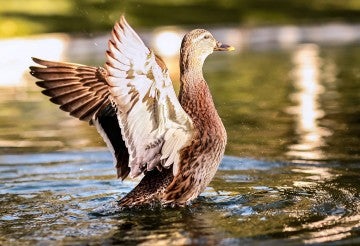
Feeding wild ducks at the neighborhood pond or local park might seem like an inviting way to bond with nature, but it’s not always healthy for our feathered friends. Ducks can find a balanced diet—including grains, grasses, aquatic plants, insects and crustaceans—on their own in the wild. But people often feed them bread, crackers and human “junk food”—none of which provides the protein, nutrients and minerals that ducks need. If you’re going to feed ducks, stick to nutritional offerings like cracked corn, rice and birdseed. And keep it bite-sized: Ducks don’t chew.
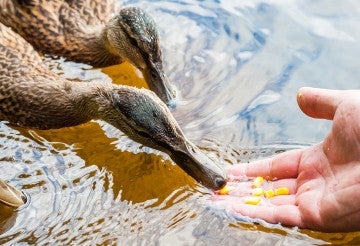
“Like water off a duck’s back” is not just an expression. Duck feathers are waterproof, even underwater.
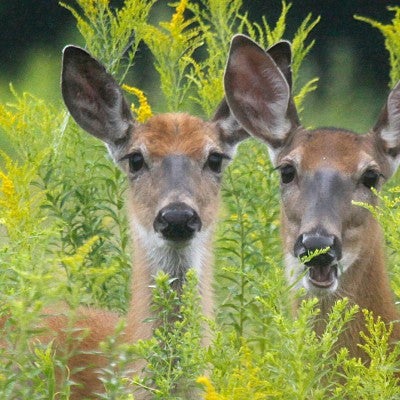
Every day, more and more wildlife habitats are lost to the spread of development. Your gift can help create more humane backyards to protect all animals.
